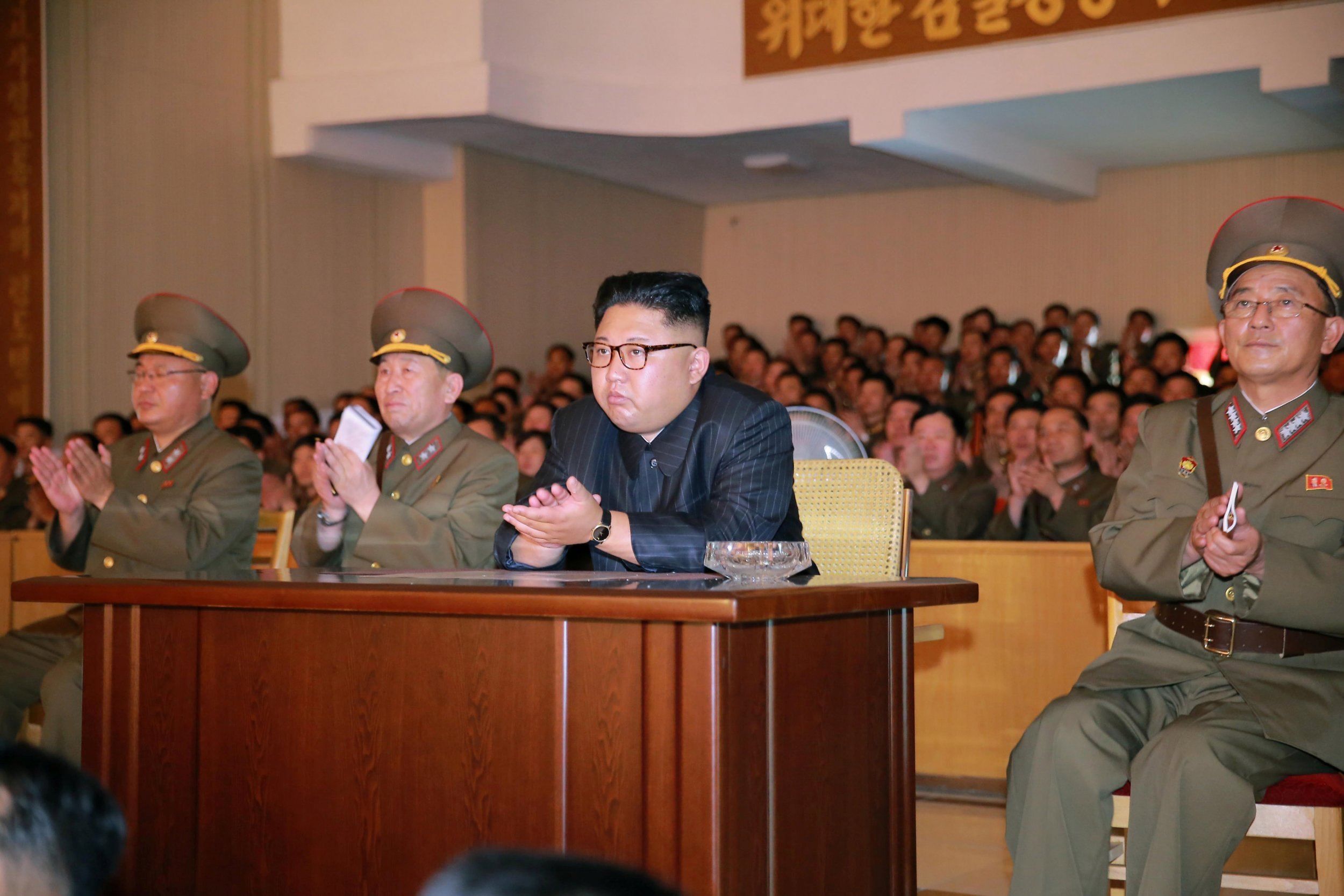
The exchange of fighting talk between U.S. President Donald Trump and North Korean leader Kim Jong Un has put the globe on notice as fears over a military conflict or even a nuclear strike on either side persist.
Should a military conflict take place, no matter which side starts it, the U.S. military has a tremendous advantage in funding, hardware and firepower, which led to Defense Secretary James Mattis reaffirming the country's military prowess in recent days.
But while North Korea may lack a massive stockpile of nuclear weapons and bombs when compared to the U.S., Russia or China, the pariah state still has enough weapons potentially capable of inflicting devastating damage to a major U.S. city or anywhere else around the world.
North Korea has been reclusive and isolated since the Korean Armistice Agreement ended the three-year long war on the peninsula in the early 1950s. The exact numbers of weapons like missiles and nuclear bombs it possesses are based on the estimates drawn from U.S. military intelligence, defense experts and North "watchers."
In terms of missiles, Kim's government has roughly 200 launchers designed to fire off an array of short-, medium- and intermediate-range missiles, ABC News reported late last month, citing the Pentagon. With most of its defense technology dating back to the Cold War and the Soviet Union, some of those missiles include varieties like the SCUD missile, which has a range of 200 to 600 miles. Its No Dong missiles stretch as far as 800 miles, and its intermediate ones, like the Musudan and KN-11, can go as far as 2,000 miles.
The intercontinental ballistic missiles that the North tested twice last month—the ones feared to have the ability to reach a major U.S. city—are called the Hwasong-14, which are based on the Soviet Rd-250 missiles.
The same report cited figures that the North had enough plutonium stored up to create a minimum of six nuclear weapons, but other estimates were as high as 10 to 16 nuclear weapons, according to ABC.
But that was before news spread that the North had indeed reached a major milestone in its nuclear program. The North created a miniaturized nuclear warhead capable of being fit inside its missiles, The Washington Post reported last week, citing analysis by the Defense Intelligence Agency.
The report also stressed that the U.S. believes Kim's regime could have as many as 60 nuclear weapons, but other experts believe the nuclear arsenal could be smaller.
There are varying opinions not only on the number of nuclear weapons but if the North even has the ability to deliver a nuclear payload to the continental U.S., Newsweek reported last week. One expert from the Massachusetts Institute of Technology and two others from Germany explained in their findings that the two missiles the North fired off last month were likely carrying much smaller payloads, and thus could not soar nearly as high with a much heavier nuclear payload.
How the North, which again has long been isolated, could so quickly escalate and improve its missile and nuclear defense programs has been a long-held question. A report released Monday claimed the North could have received some aid from Ukraine or Russia. It's been known that Pakistan and Iran had a hand in the North's progress, but one expert said it was the North's devotion to spending on the programs.
"But we must give credit where it is due," aerospace engineer and 38 North contributor John Schilling told Popular Mechanics earlier this month. "Much of this—in recent years, probably most of it—has been North Korea's own doing. They are a minor and relatively backward industrial power, but they have devoted about 25 percent of their entire gross domestic product to defense, and much of that to missiles."
Uncommon Knowledge
Newsweek is committed to challenging conventional wisdom and finding connections in the search for common ground.
Newsweek is committed to challenging conventional wisdom and finding connections in the search for common ground.
About the writer
General assignment reporter/writer covering politics, military, some sports and more. Previously at International Business Times as a breaking news and ... Read more
To read how Newsweek uses AI as a newsroom tool, Click here.








